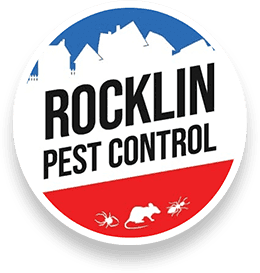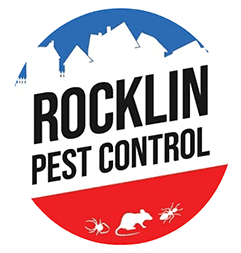
Rocklin Aphid Control
Serving South Placer County, Sacramento County and the Surrounding Areas
What are Aphids?
If you’ve been doing some gardening or farming, there’s a pretty good chance you know what an aphid is.
Aphids are small, sap-sucking, bugs that you’d find in small clusters on plants, and often tended to by ants. They can be white, black, brown, gray, yellow, light green, or even pink, depending on the species. Some may have a waxy or woolly coating.
Aphids fall under the Order of Hemiptera, and are known to be “true bugs”. There are tens of thousands of species of hemipterans and are so classified because of their sucking mouthparts. Other hemipterans– cousins of aphids, if you will– are cicadas, bedbugs, and leafhoppers.
What Are Some of the Defining Characteristics of Aphids?
There are about 400 species of aphids, and many of these species fall under the category of pests.
With a size just under an inch (or about two millimeters or less), aphids up close look like little muscle cars with tailpipes. Aphids are pear-shaped, have soft bodies, long legs, elongated, slender mouthparts, and two cornicles (the “tailpipes”) sticking out of their backsides.
Most of the adult insects are wingless, although some individual winged aphids have been seen from time to time. Aphids spend most of their lives latched onto plants, sucking away at the sweet plant juices the entire time with their straw-like beaks stuck into leaves and stems.
Interestingly enough, the poop that comes out of aphids is mostly sugar, condensing into a “honeydew” drop, which ants (and other insects) go crazy for.
Are Aphids Dangerous?
To humans, no, not directly. But aphids can be quite damaging to plants, such as crops, which means they can destroy our farms, trees, and gardens if left unchecked.
Aphids tend to be a nuisance among those growing fruits, flowers, and ornamental plants, as they tend to disfigure these with their honeydew secretions and the subsequent growth of sooty mold.
Aphids in small numbers do minimal damage. But these insects are considered to be some of the most destructive agricultural pests in temperate regions. Infestations of aphids have been known to occur, causing discoloration, spotting, or puckering of leaves.
Most species of aphids suck up the cell contents of plants and are (relatively) harmlessly with their piercing mouthparts. A few, however, inject toxic substances with their saliva.
So, in addition to the harm they cause to plants from literally sucking the life out of them, certain species of aphids are also vectors for as many as 100 different plant viruses.
How Do Aphids Typically Reproduce?
Different species of aphids have different life cycles. But as far as reproduction goes, if there’s one thing that’s common among all these species of aphids, is that aphids are quite prolific. Individual aphids can produce several hundred offspring in a month.
These bugs can reproduce rapidly by giving birth via unfertilized eggs— a curious process known as parthenogenesis. This means female aphids don’t need a father to spawn new aphids. Newly born aphid nymphs become full-grown reproducing adults within about a week. At this point, they can produce up to five offspring per day for up to 30 days!
While aphids might look plump and relatively immobile that they could never fly far, they can travel hundreds of miles with the assistance of low-level jet winds.
Ants also often carry aphids around. Ants are primarily fond of the sugary, energy-rich waste exuded by aphids. Some species of ants transport these aphids to new locations for them to feed, and zealously protect these against other marauding insects.
How Can I Prevent Aphids from Infesting My Plants?
An ounce of prevention is worth a pound of cure. Before you have a full-blown infestation of aphids in your garden, consider taking some preventative measures first.
Companion Plants
One effective way is through companion planting. Certain plants near others help in keeping aphids away:
Aphids are especially attracted to mustard plants (Brassica and Sinapis) and watercress or garden cress plants (Nasturtium). What this means is that you can plant these near more valuable crops, herbs, or ornamentals, so aphids choose to hang out there instead of on your prize plants.
Of course, Don’t forget to check your trap plants regularly to keep aphid populations down, as they can jump to your valued plants once it gets too crowded among your mustard and garden cress plants.
Other plants as Natural Aphid Repellants
Aphids are naturally repelled by catnip, so feel free to have these around your garden (you’ll be attracting quite a number of cats, though).
Also, garlic and chives repel aphids when planted near lettuce, peas, and rose bushes.
Natural Predators
Don’t forget that certain insects feed on aphids as well (see above). You can order supplemental populations these insects online to keep aphid populations controlled within your farm or garden.
Horticultural Oil
For fruit or shade trees, spray dormant horticultural oil to kill overwintering aphid eggs.
Highly Regarded In Our Community Associations
How Do I Know I Have an Aphid Problem?
Aside from the obvious clusters of aphids you’d see on your plants, you might also want to watch out for the following:
- Misshapen, curling, stunted, or yellowing leaves.
- Are the leaves or stems of your plants covered with a sticky substance? That might be a sign of honeydew secretions, and that aphids may have been sipping sap.
- Do branches and leaves appear black? This might be a case of sooty mold, a sort of fungal growth brought about by aphids’ honeydew secretions.
- Do your flowers or fruit look distorted or deformed? This could be due to feeding aphids.
- Some aphid species cause galls to form on roots or leaves, so watch out for these as well.
Don’t forget to check the undersides of leaves– remember, aphids love hiding there.
How Do I Get Rid of Aphids the Natural Way?
The Old Farmer’s Almanac has a good number of suggestions for getting rid of aphids the natural way:
Try spraying cold water on the leaves. Sometimes all aphids need is a cool blast to dislodge them. They aren’t particularly agile or mobile, so they are unable to find their way back to the same plant.
- Dusting your plants with flour also helps if you have a large aphid invasion. The flour acts as a constipation agent for the pests.
You can also wipe or spray the leaves of your plants with a mild solution of water and a few drops of dish soap. The soapy water solution must be reapplied every two to three days for two weeks. Stir together one quart of water, one teaspoon liquid dish soap, and a pinch of cayenne pepper.
Another effective way of getting rid of aphids is diatomaceous earth (DE). DE is a non-toxic, organic material that will kill aphids. Just don’t apply DE when plants are in bloom as it’s harmful to pollinators (such as bees and butterflies) as well.
A Final Word on Aphids
Once you’ve spotted signs of aphids growing amongst your plants, you’ll want to deal with this right away. Although they’re not directly harmful to humans or pets, they can reproduce fairly quickly and overrun your plants in a relatively short time if you let them flourish.
It might be relatively easy to get rid of a few aphid clusters, but once you have a full-blown infestation on your hands and find yourself quite overwhelmed, you might want to call the professionals to deal with your pest problem.
Whether you’re having trouble with aphids or any other home garden pests, get in touch with the good people of Rocklin Pest Control Services. They can give you a quick assessment of your pest situation and recommend the best options available so your home can be pest-free once more.
Get started with a no-cost inspection by calling (916) 884-6114 today.


What Sets Us Apart? Trust the Pros
-
We offer free consultations and limited termite inspections for homeowners.
-
We have been serving the local area for over 18 years.
-
Our team of professionals has decades of experience in the industry.
-
We offer a variety of Programs for you to choose from.
-
Our "no additional cost" warranty on maintenance means if the bugs come back, so do we.
-
We strive to offer quality service with a reputation for integrity, and we stand by our word.
-
We offer next day service, call us by two and we will be there for you!
Same Day Emergency Services may be available at additional cost. Check with one of our Team Members for appointment availability.
-
We're a local, third generation, tight-knit family owned business.










.2308031327550.jpg)
.2308031327550.jpg)
